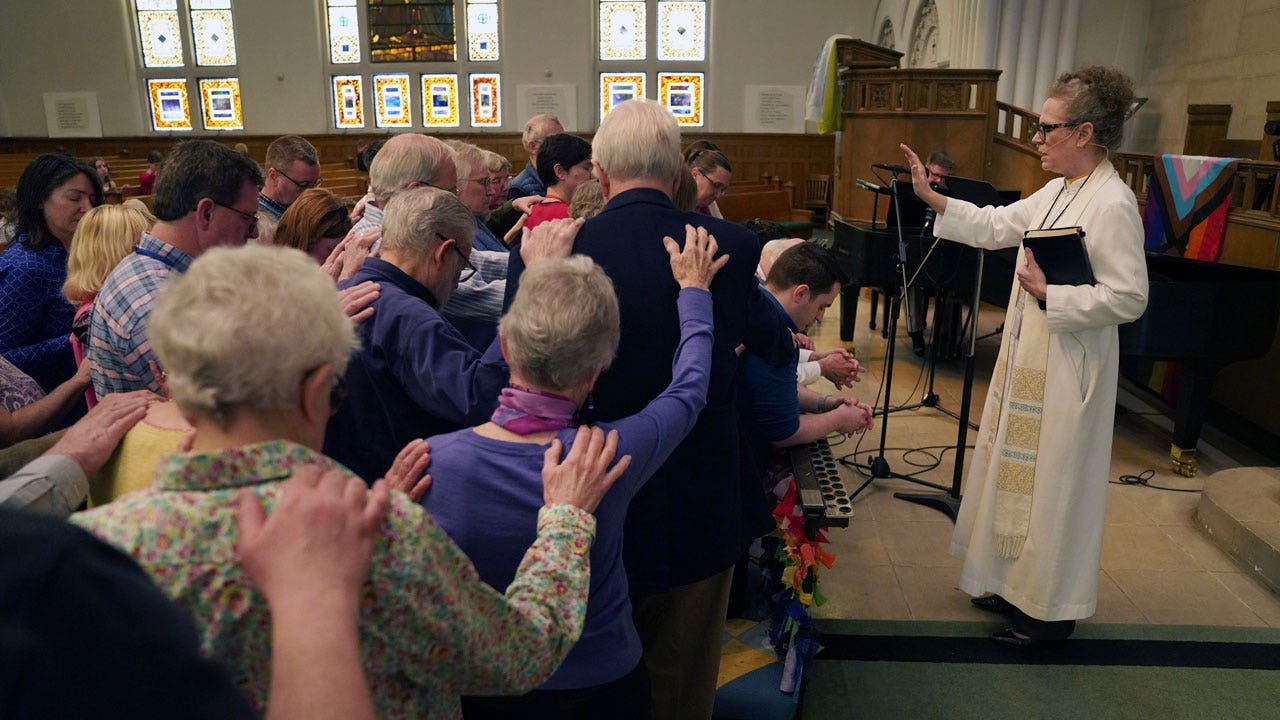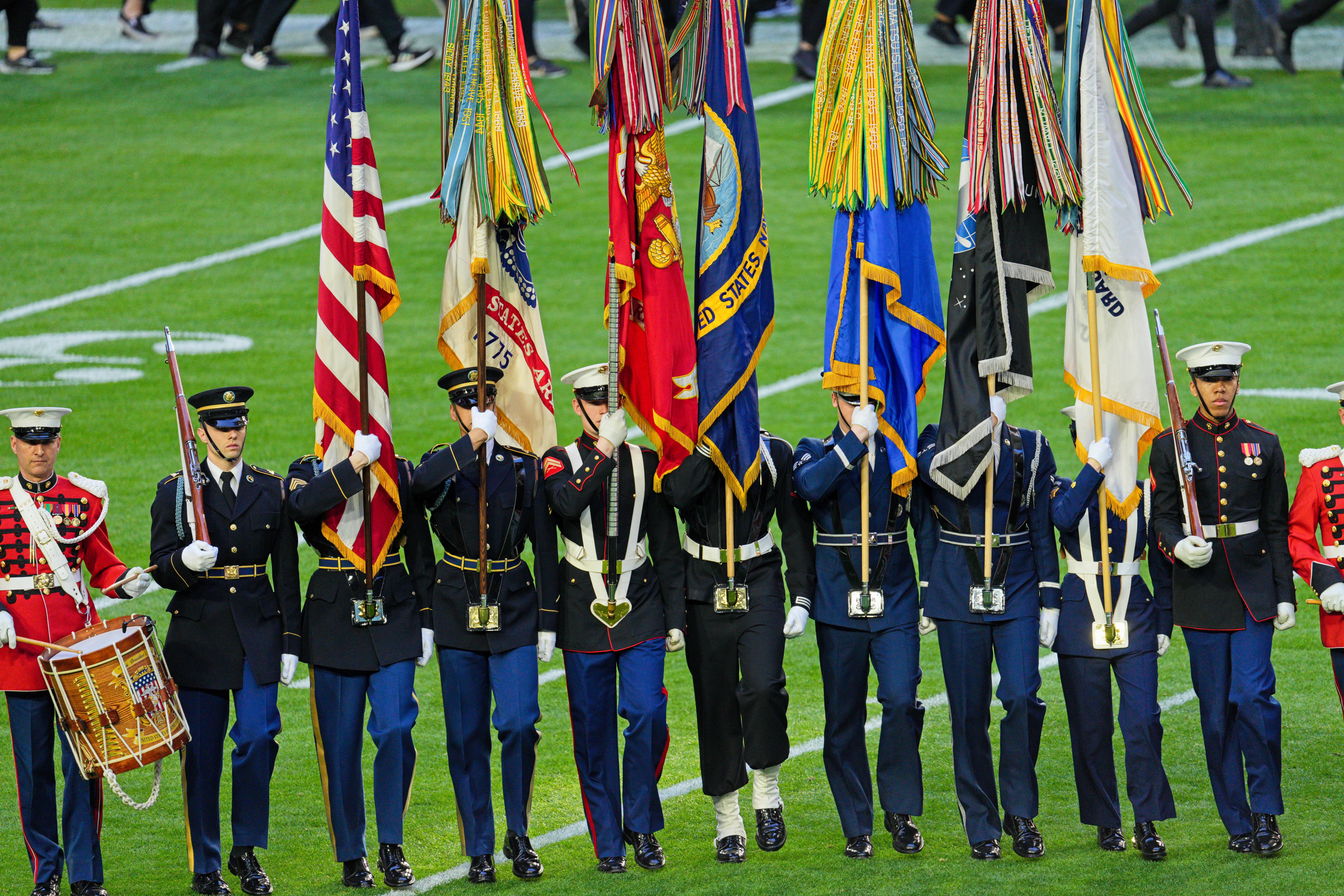The political spotlight will be on Michigan on Tuesday when voters there cast primary ballots, and then again four days later when Republicans host an additional contest.
The party adopted a novel and somewhat confusing hybrid nominating system this year, which will culminate on March 2 with a statewide nominating convention.
Or two.
A mutiny in the state Republican Party has spawned rival factions, each pledging to hold its own convention, though the national party recognizes only one.
Here’s what to know:
When are the Michigan primary and convention, and how do I vote?
Michigan will hold its primary on Feb. 27, with voting for Republicans and Democrats. Additionally, the state’s Republican Party will host a nominating convention on March 2.
The polls on Tuesday will be open from 7 a.m. to 8 p.m. local time (most of the state is in the Eastern time zone). Early, in-person voting began on Feb. 17. Voters can find their polling places here, and they can register to vote through 8 p.m. on the day of an election by visiting their city or township clerk.
All voters can participate in the primary, regardless of whether they are Democrats, Republicans or independents. But voters can’t pick candidates from more than one party on the same ballot, known as crossover voting.
At the Republican nominating convention, only delegates, a group of elected party loyalists, can participate in the caucus-style event.
Who’s on the ballot on Tuesday?
Seven Republicans are listed on the ballot, headlined by former President Donald J. Trump, the G.O.P. front-runner, and former Gov. Nikki Haley of South Carolina, who was Mr. Trump’s ambassador to the United Nations. Most of the others have dropped out.
President Biden and his nominal challenger, Representative Dean Phillips, will appear on the Democratic primary ballot, along with Marianne Williamson, who has dropped out.
Both parties also have an option to vote for “uncommitted.” Here’s how to look up sample ballots.
Why is Michigan holding a split process, with a primary and a convention?
Democrats, who control the state government, passed a law last year that moved up Michigan’s primary date, which used to be the second Tuesday in March.
Republicans fought the change, because it conflicts with rules set by their national party that mostly bar states from holding nominating contests before March 1. To avoid being docked delegates by the national party, Republicans in the state adopted the hybrid nominating system.
How are the delegates awarded this year?
The process is fairly straightforward for Democrats, who will use a proportional system based on the primary results for most delegates. Michigan will send 140 delegates to the Democratic National Convention in Chicago.
The formula for Republicans is more complex: From the primary, only 16 of 55 delegates will be awarded, also proportionately. But most of the delegates (39) will be decided during the convention.
When can we expect results?
Polling shows that Mr. Trump and Mr. Biden have major leads in the state, which could help speed things up after the polls close on Tuesday.
“If either presidential primary is a blowout, we won’t need many votes to call the winners,” Stephen Ohlemacher, election decision editor for The Associated Press, said in an email.
And while Mr. Trump’s strong standing applies to the convention as well, there’s greater uncertainty about the timing of results because of how novel the process is. There is also the drama with rival Republican factions potentially hosting dueling conventions.
What is the time and location of the convention?
Both of the party gatherings on March 2 will start at 10 a.m. Eastern time.
Pete Hoekstra, whom the R.N.C. has deemed to be the state party’s rightful chairman, selected the Amway Grand Plaza Hotel in Grand Rapids as his convention site.
On the other side of the state, Kristina Karamo, the Trump-styled election denier who has refused to give up power after a vote to remove her earlier this year, is forging ahead with her gathering, at Huntington Place in Detroit.
What will the convention be like? Why is the process so confusing this year?
Party loyalists from across Michigan will caucus by congressional district, breaking out into 13 separate groups to vote for president. They were chosen for the role by their county parties.
Republicans will award three delegates for each congressional district. A candidate who receives a majority of votes will win all three, otherwise it’s two for a plurality and one for the second-place finisher.
The group will also “confirm” the results of Tuesday’s primary and award the remaining 16 delegates based on them.
All of this is unfolding against the backdrop of the party feud in the state.
The process could effectively play out on a split screen at the dueling party gatherings, producing competing slates of delegates that could both wind up at the national convention this summer. The R.N.C. would then decide which one to recognize, and its acknowledgment of Mr. Hoekstra as the state party’s leader signals that his slate would be considered the official one.
Wait, who is Kristina Karamo? And Pete Hoekstra?
Ms. Karamo gained notoriety for spreading conspiracy theories about voter fraud after the 2020 election. In 2022, she lost her bid for Michigan secretary of state, an office that oversees elections. Last year, in February, she emerged victorious from a marathon vote for state party chair.
But Ms. Karamo soon lost the support of many state Republicans, who said that the party had been shrouded in secrecy and struggled with money under her leadership. They voted to remove her on Jan. 6 and elected Mr. Hoekstra as her replacement two weeks later, actions that Ms. Karamo has argued were illegitimate.
Mr. Hoekstra, a former House member, was Mr. Trump’s ambassador to the Netherlands. He stepped forward in January to seek the job as party boss and was endorsed by Mr. Trump later that month.
The R.N.C. recognized him as the chairman on Feb. 14, three days before he attended a rally for Mr. Trump in Waterford Township, Mich.






